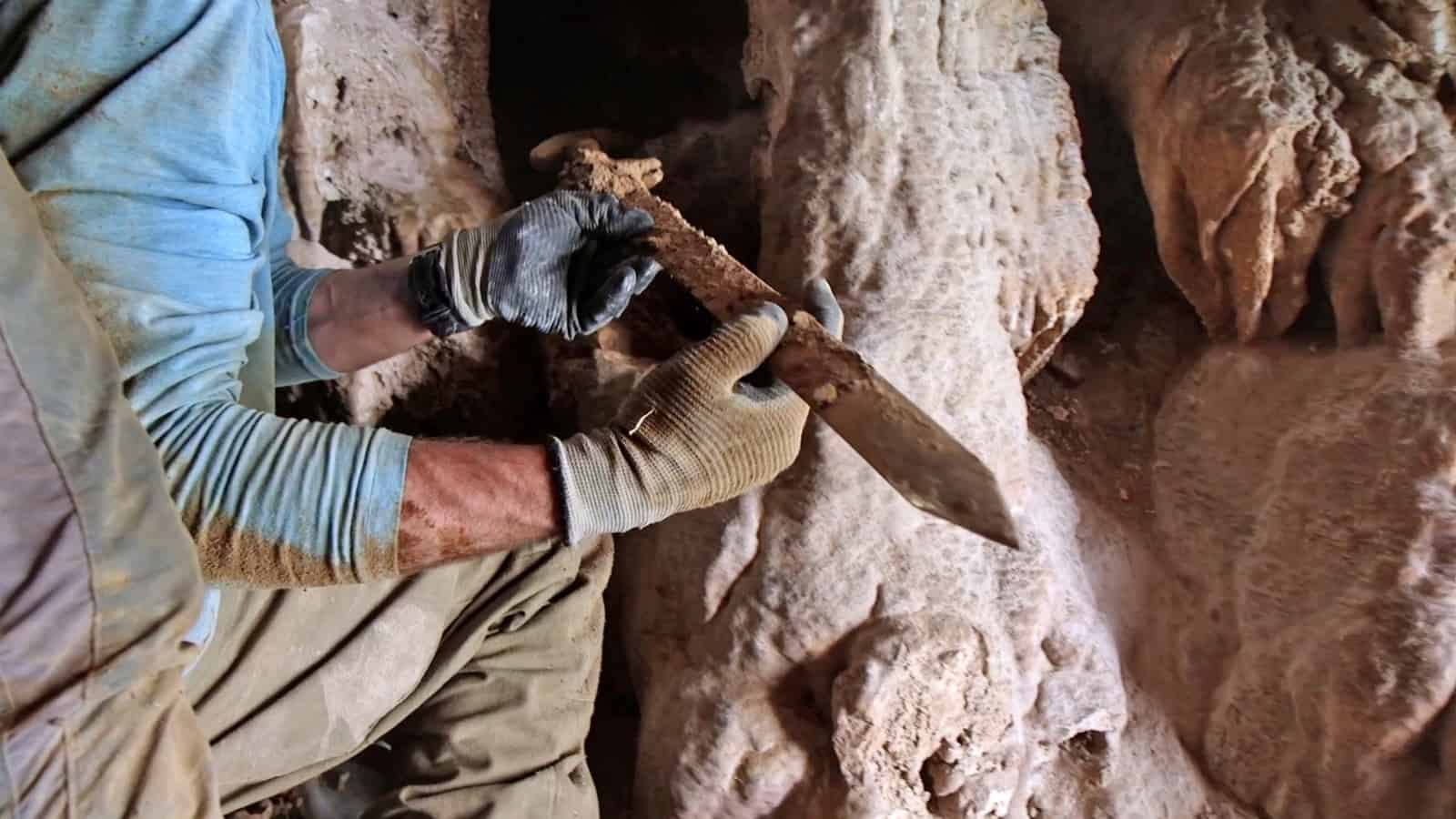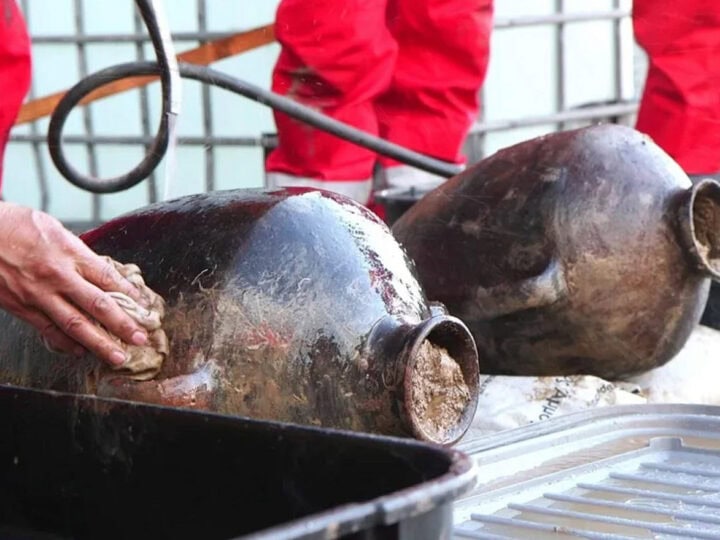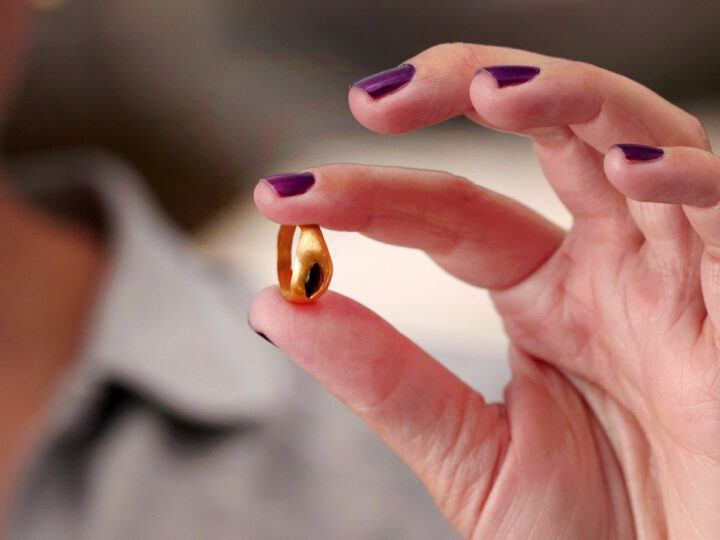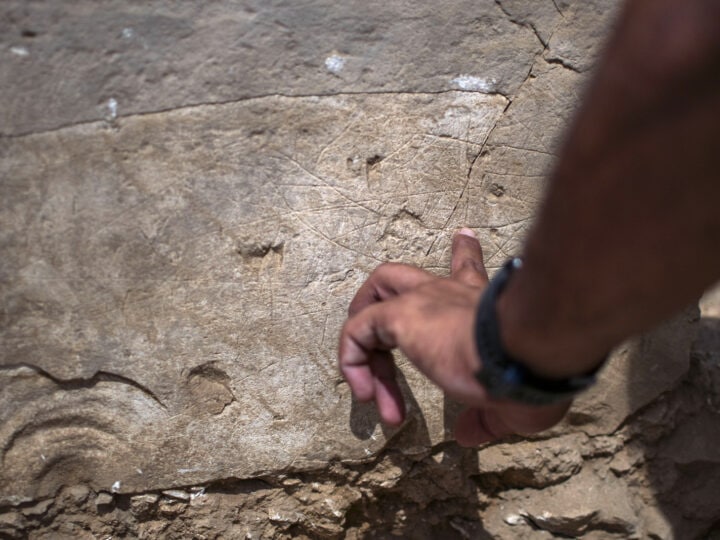About 1,900 years ago, Jewish rebels fighting cruel Roman rule of the Holy Land captured four spatha swords from Roman soldiers.
Probably to avoid a severe punishment for their crime, or in hopes of using them at a later time, they hid the weapons in a crevice of a cave in what is now Ein Gedi Nature Reserve near the Dead Sea.
There the swords were preserved, in amazingly good condition, until archeologists discovered them about two months ago.
The Israel Antiquities Authority calls it “an extremely rare find, the likes of which have never been found in Israel.”
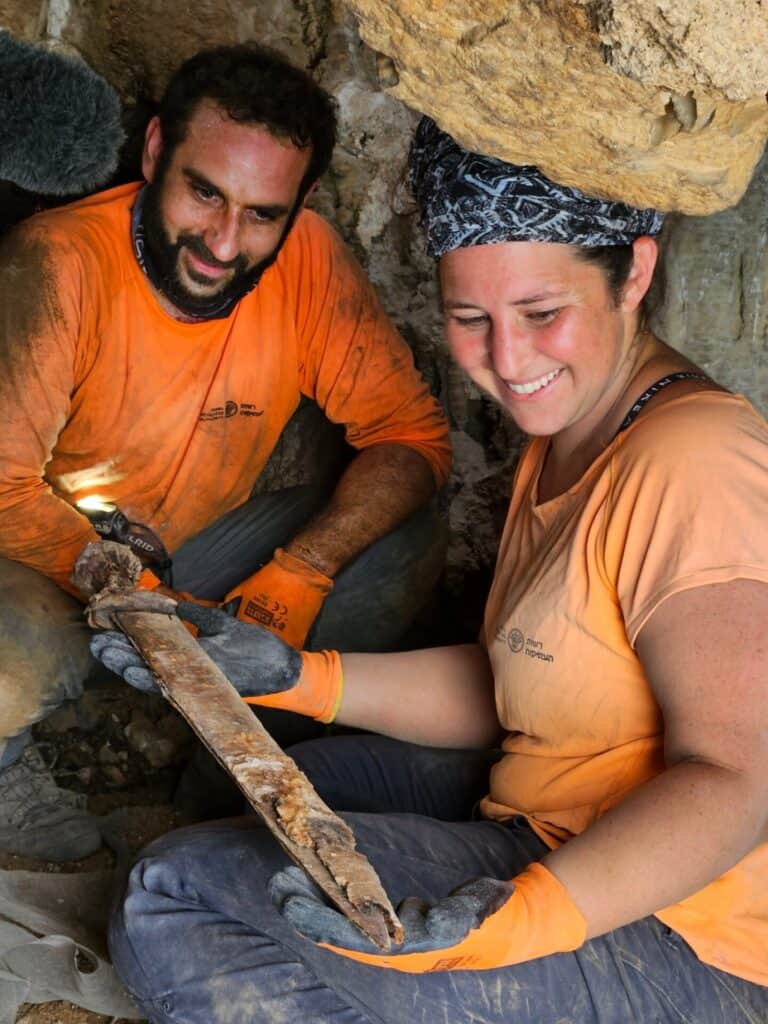
The discovery is described in New Studies in the Archaeology of the Judean Desert: Collected Papers, a book launched Wednesday at a conference in Jerusalem.
A part of the cache was spotted first by Asaf Gayer of Ariel University, who came to the cave with Hebrew University geologist Boaz Langford and Israel Antiquities Authority photographer Shai Halevi to take multispectral photos of a stalactite inscribed in First Temple period Hebrew.
They reported the find to the Israel Antiquities Authority and returned with personnel from the IIA’s Judean Desert Archaeological Survey Team, who found the rest of the treasure.
Three of the swords were still inside their scabbards. Ornate wood and metal handles decorated with strips of leather were also found.
“The blades have been preserved so well, they look like they could be picked up and used right now, even [nearly] 2,000 years after they were forged,” said Langford.
The length of the blades of three swords was 60–65 cm, typical of Roman spatha swords, and the fourth one was a smaller ring-pommel sword. The swords were carefully removed from the crevice in the rock and transferred to the Israel Antiquities Authority’s climate-controlled laboratories for preservation and conservation. The initial examination confirmed that these were standard swords employed by Roman soldiers stationed in Judea in the second century CE.
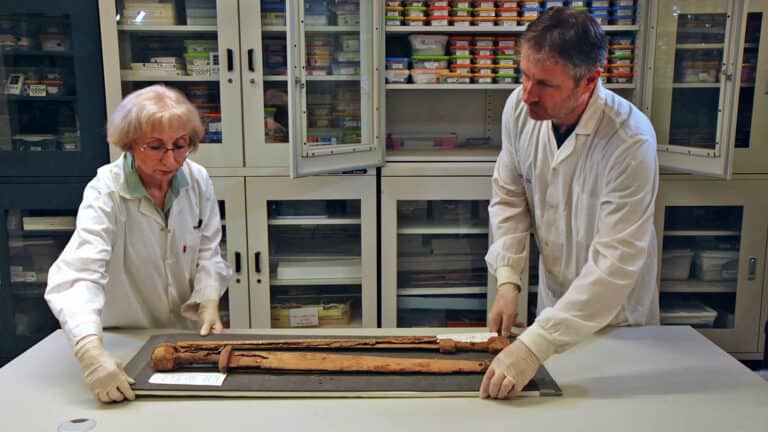
Since then, researchers have found more Roman-era artifacts in the same cave, including a bronze coin minted at the time of the revolt, as well as items from the much earlier Chalcolithic period around 6,000 years ago.
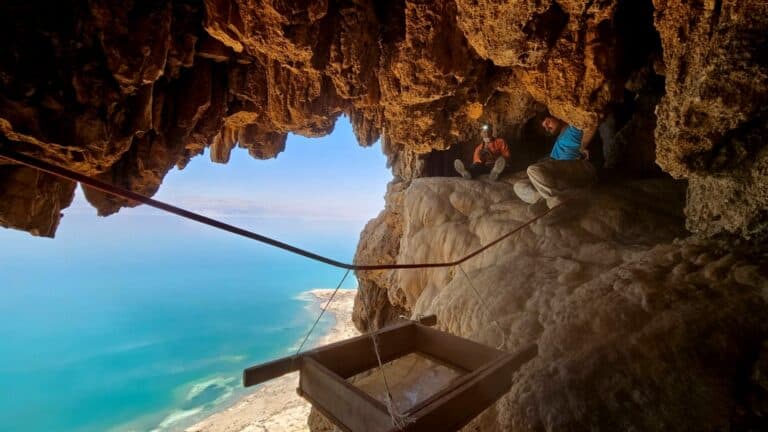
Eli Escusido, director of the Israel Antiquities Authority, called the area a “unique time capsule” in which archeologists have found “fragments of scrolls, coins from the Jewish Revolt, leather sandals — and now even swords in their scabbards, sharp as if they had only just been hidden away today.”
“The Judean Desert never ceases to surprise us,” said Amir Ganor, director of the IAA’s Antiquities Robbery Prevention Unit.




